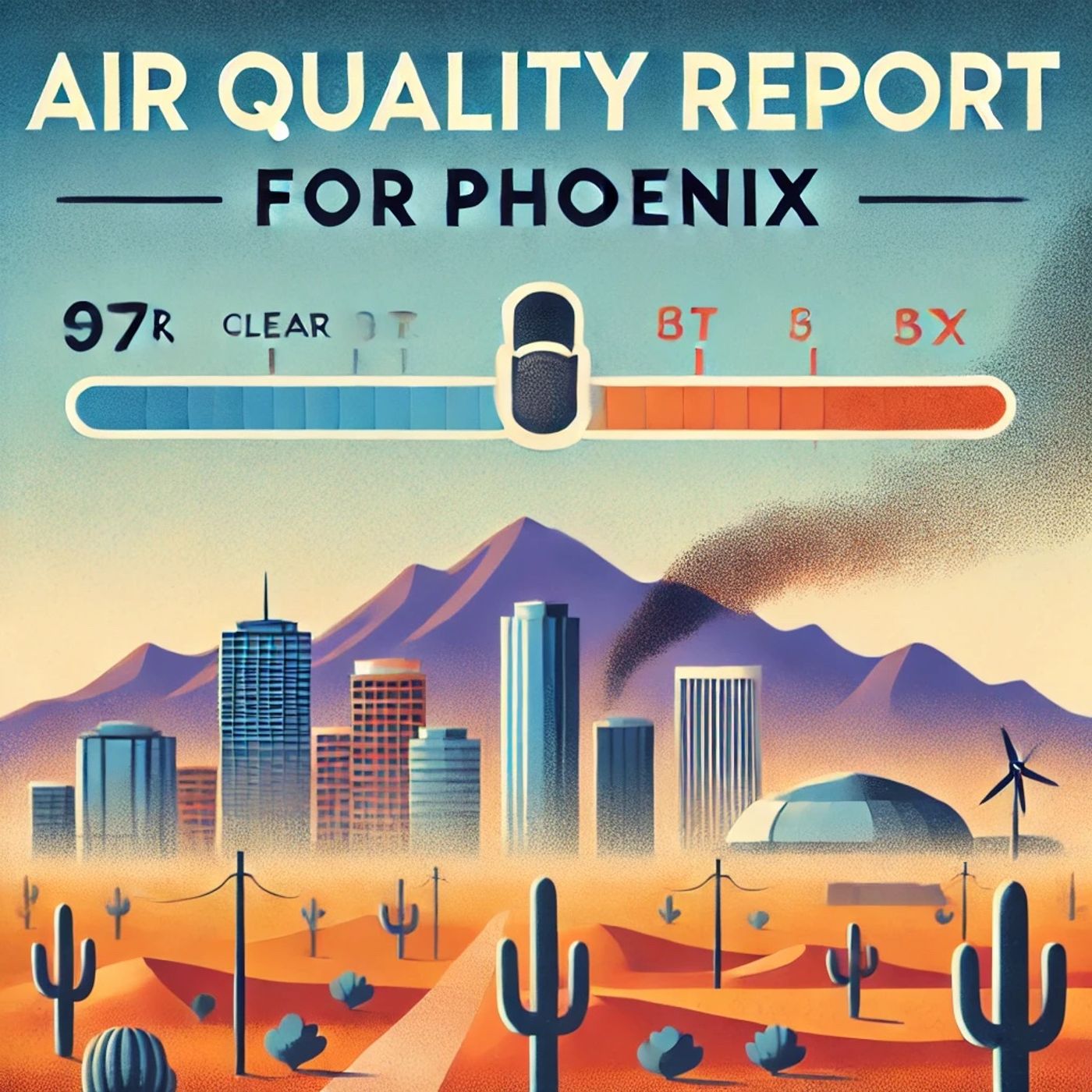Listen "Phoenix Air Quality Raises Concerns Amid Moderate Levels"
Episode Synopsis
Phoenix, the bustling capital of Arizona, is known for its hot desert climate and stunning desert landscapes. Today, like many days, the air quality in Phoenix is a matter of concern for its residents and visitors. Air quality can significantly impact the health and well-being of the population, especially for those with respiratory issues, the elderly, and children.As of today, Phoenix is experiencing moderate air quality levels, according to the Air Quality Index, commonly known as AQI. The AQI is a standardized system used to measure and report air quality based on pollutants such as ground-level ozone, particulate matter, carbon monoxide, sulfur dioxide, and nitrogen dioxide.The primary pollutant affecting Phoenix today is ground-level ozone. Ozone at ground level forms when pollutants emitted by cars, power plants, industrial boilers, refineries, and other sources chemically react in the presence of sunlight. This is particularly common in urban areas with heavy traffic and industrial activities. Ground-level ozone is known to cause respiratory issues and other health problems, particularly on hot and sunny days.Particulate matter, especially PM2.5, is another pollutant influencing today's air quality. PM2.5 refers to fine inhalable particles with diameters that are generally 2.5 micrometers and smaller. These tiny particles can penetrate deep into the lungs and even enter the bloodstream, leading to various health problems including heart attacks, decreased lung function, and aggravated asthma.Local authorities have issued recommendations for sensitive groups, advising them to reduce prolonged or heavy exertion outdoors. This includes people with preexisting respiratory or heart conditions, children, and older adults. For the general population, it is recommended to take regular breaks when engaging in outdoor activities and to keep an eye on updating air quality information.The Arizona Department of Environmental Quality continuously monitors the air and provides real-time data and forecasts. Efforts to improve air quality in Phoenix include the implementation of stricter emissions standards for vehicles, promoting public transportation, and encouraging carpooling. Residents can contribute by minimizing the use of vehicles, avoiding the burning of trash and leaves, and using eco-friendly paints and cleaning products.The geography of Phoenix, nestled in the Valley of the Sun, adds another layer of complexity to the air quality scenario. The surrounding mountains can trap pollutants, creating a phenomenon known as an inversion layer, where cooler air gets trapped near the surface under a layer of warmer air, preventing pollutants from dispersing.Air quality is a dynamic element influenced by both human activities and natural factors. Staying informed and taking proactive steps can help mitigate health risks. Residents are encouraged to use apps and websites that provide real-time air quality data to help them make informed decisions about their outdoor activities.In conclusion, while today's air quality in Phoenix is considered moderate, vulnerable groups should take precautions to protect their health. Constant vigilance and community effort are crucial in managing and improving the air quality in this vibrant city, ensuring a healthier environment for all its inhabitants.This content was created in partnership and with the help of Artificial Intelligence AI
More episodes of the podcast Phoenix Air Quality Report - Daily
Phoenix Enjoys Excellent Air Quality Today
23/08/2025
 ZARZA We are Zarza, the prestigious firm behind major projects in information technology.
ZARZA We are Zarza, the prestigious firm behind major projects in information technology.
